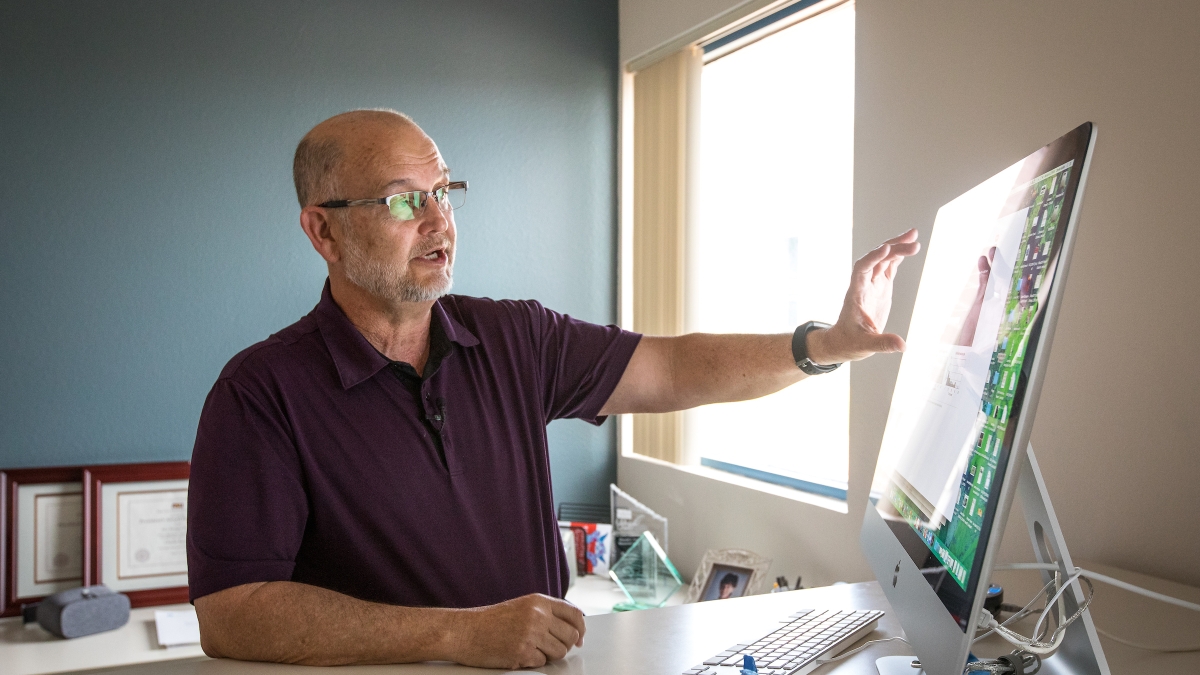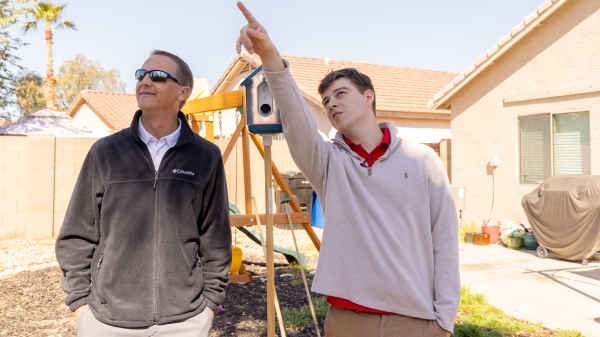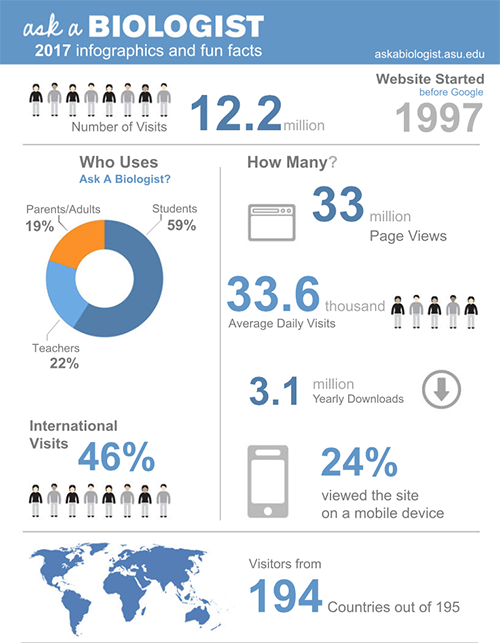Answering the call of the curious
ASU's Ask A Biologist website, recently redesigned, has 50 million visits and growing

Do reindeer have red noses?
Of course they don’t. (Sorry, but they don’t fly, either.)
However, if you posed the question to the website Ask A Biologist, you might be surprised by the scientific truth. When it’s very cold, reindeers’ noses heat up. If you look at them under infrared light, they glow red.
Hosted by Arizona State University since before Google existed, Ask A Biologist provides answers like that every day to people around the world. The site, which recently celebrated its 20th anniversary, unveiled a new redesign last month.
Ask a Biologist by the numbers
• more than 50 million visits
• more than 40,000 questions answered
• more than 30,000 visits every day
• 46 percent of traffic comes from abroad
• 4th most visited page on ASU’s website
• 1,200 top search results in Google
“Without a doubt we teach more students than any instructor at ASU,” creator and developer Charles Kazilek said. Include the fact that teachers download content for their classrooms, and “it has a multiplier effect,” he said.
Video by Jamie Ell/ASU Now
It started because of people trying to reach experts at the university to answer questions. Kazilek, a senior research professional in the School of Life Sciencespart of the College of Liberal Arts and Sciences, had an idea. He grew up in a small town where you could call a help line at the library.
“But you’ve got to have someone on the other end of the line to answer it.”
So, the site started with an oath to answer the question within 72 hours. That gave the faculty time to research the question and respond. The time frame has another benefit too.
“That allows us not to be turned into a homework site,” Kazilek said. “We’re here for the truly curious.”
Each semester, a student teaching assistant and a graduate student playing Dr. Biology route the questions to the appropriate expert. There are more than 150 volunteer experts. (Not all of them are from ASU.)
Answering questions can get complex. The answer to “Why is milk white?” involves chemistry and physics, as well as biology. When the answers come back, they’re turned into kid-friendly prose.
“We offer a service and we package it in plain language,” said Kazilek.
The site has more than 5,000 pages of content. There are resources for teachers and games and activities for kids. Virtual tours of rain forests, deserts and the inside of a beehive are on tap. The Bird Finder tool can help identify mystery birds in your backyard. There’s also a dedicated Youtube channel.
“Its footprint has been growing stronger and stronger,” Kazilek said. “Lots of ASU creativity and vision and desire to communicate to the world … It reaches such a large global audience. It is a bit of an ambassador for ASU.”
Top photo: Chuck Kazilek, ASU's chief technology innovation officer, and the creator and developer of the "Ask A Biologist" website, works from his Computing Commons office on Wednesday, April 4. Photo by Charlie Leight/ASU Now
More Science and technology

Making magic happen: Engineering and designing theme parks
The themed entertainment industry is widespread and diverse, encompassing everything from theme parks to aquariums, zoos, water parks, museums and more. The Theme Park Engineering and Design…

AI-equipped feeders allow ASU Online students to study bird behavior remotely
ASU Online students are participating in a research opportunity that's for the birds — literally. Online Bird Buddies is a project that allows students to observe birds remotely, using bird feeders…

National Humanities Center renews partnership with Lincoln Center for responsible AI research
The National Humanities Center has announced that Arizona State University's Lincoln Center for Applied Ethics is one of four organizations to receive funding for the second phase of their…
